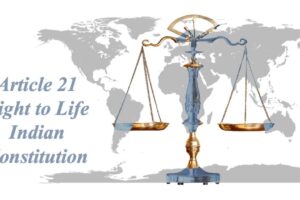
PERSISTING CONTROVERSIES IN THE PRACTICE OF LOVE JIHAAD
In recent years, the idea of Love Jihad has drawn a lot of attention and sparked heated discussions and disagreements in a number of nations. This practice has been depicted as a malevolent strategy used by Muslim men to weaken societies that are not Muslim. The existence and scope of Love Jihad, however, are still up for debate.
Love Jihaad: About
Love Jihaad, also known as Romeo Jihad, is a purported practice in which young Muslim men and boys are supposed to approach young ladies from non-Muslim societies with the intention of convincing them to convert to Islam by seeming to be in love. From a legal standpoint, political phrases like “love jihad” are not permitted.
Legislation Pertaining to Love Jihaad
- Article 21 of the Constitution of India recognizes the right to privacy as a basic right, which safeguards an individual’s personal decisions, particularly those related to marriage and relationships. It guarantees people’s right to make decisions free from unjustified intervention.
- Articles 25-28 of the Constitution of India provide religious freedom. People are free to follow, declare, and spread any religion they so choose. This includes the right to voluntarily and free from coercion convert to a different religion.
- In India, interfaith and inter-caste marriages are governed by the Special Marriage Act. It offers security to couples suffering criticism or dangers because of their interfaith marriage and permits people of various castes or religions to register their union.
- The Indian Penal Code has several sections that deal with crimes like coercion, fraud, and forced conversion. These clauses shield people from being forced against their will to change their religion.
Revolving Controversies: Love Jihaad
The major controversies pertaining to the idea of Love Jihaad are as follows:
- Proponents argue that the idea of “love jihad” depends on baseless and unsubstantiated allegations of Muslim males compelling or encouraging non-Muslim women to get married to Muslims in order to convert them to Islam.
- Many skeptical individuals believe the notion of a coordinated effort of “love jihad” to be a ridiculous conspiratorial theory, claiming that there is not sufficient proof to back up its pervasive existence.
- The expression became widely recognized in religious and political debates, and certain political organizations abused it to further their own purposes. Debates regarding the politicization of social and religious issues have arisen from this.
- Many Indian states were either thinking about or set legislation in place for dealing with the purported issue of “love jihad.” In order to prevent forced conversions, many governments have enacted or passed laws or rules and regulations.
- Opponents argue that the expression in itself is controversial and may heighten religious division, foster societal tensions, and denigrate interfaith relationships.
- Issues have been created regarding the controversy’s potential influence on interfaith relationships, particularly its tendency to dissuade and foster suspicion and distrust between couples from different backgrounds in religion.
- Law professionals and human rights organizations have challenged the legality of legislation or strategies relating to “love jihad,” alleging that these laws may infringe on someone’s right to confidentiality and independence over personal concerns.
- The general consensus on the issue has been greatly influenced by coverage in the media. The manner in which stories are constructed and the terms utilized may impact how “love jihad” is perceived and interpreted.
- The battle has spread to social media, wherein combative and polarizing discussions may heighten sentiments and assist in the dissemination of disinformation.
Role of the Judiciary: Love Jihaad Cases
The two-landmarklove jihaad cases are as follows:
Upholding the Idea of Love Jihaad law
- In the case of Shafin Jahan v Ashokan KM, that entailed the union of Shafin Jahan, a Muslim, and Akhila Ashokan, a Hindu woman who converted to Islam. At first, the Kerala High Court declared the marriage to be void, citing the idea of “Love Jihad law.” But later, the Indian Supreme Court reversed the annulment, underscoring the woman’s freedom to select her partner and religion.
Misusing the Idea of Love Jihaad:
- In the case of Lily Thomas v UOI, the Supreme Court ruled that conversion to marriage with the express intent of divorcing the first wife is illegal. The court was considering the case of a previously married Hindu man who converted to Islam in order to get into a bigamous marriage. According to the Court, in such a case, the second marriage would turn out to be null and void and the first marriage would automatically dissolve.
Our ignorance of the Constitution poses the biggest threat to the idea of love jihaad. Fostering an atmosphere of mutual understanding, tolerance, and respect is essential to thwarting polarizing narratives and advancing societal harmony. Reiterating personal responsibility, defending religious liberty, and holding productive discussions can all serve to lessen the controversy surrounding Love Jihad and advance an inclusive society.



